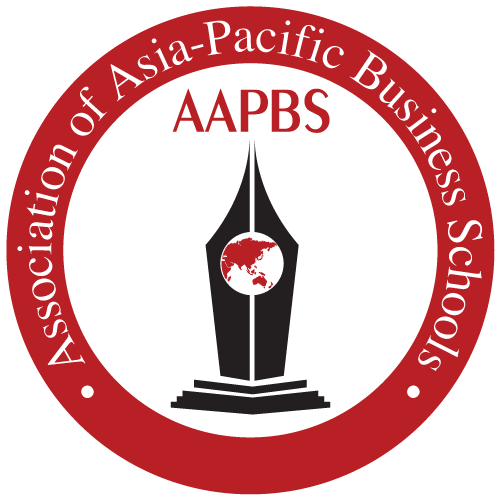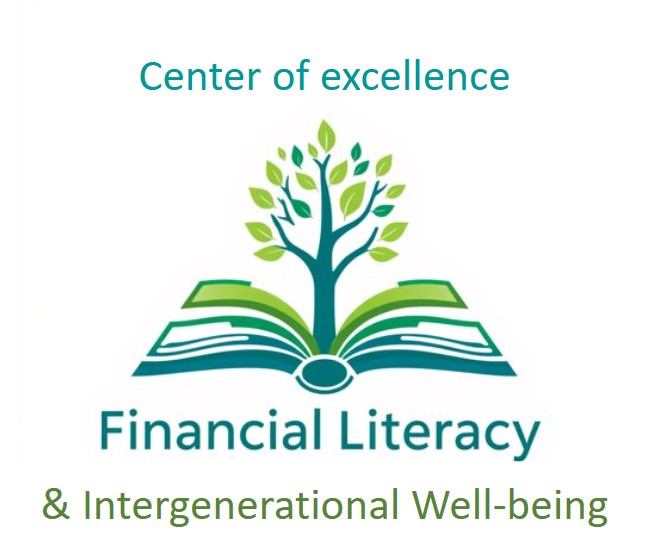The Effect of Market Orientation and Strategic Flexibility on Competitive Advantage through Hotel Firm Performance in Surabaya
 Abstract Views:
143 times
Abstract Views:
143 times
 PDF Downloads:
39 times
PDF Downloads:
39 times
Abstract
Purpose: The hospitality and tourism industry is a vital sector in Indonesia, significantly contributing to the country's economy. East Java is the province with the second-largest number of hotel buildings in all of Indonesia. The largest hotel star category in both Indonesia and East Java, particularly in Surabaya, the capital of East Java, is a three-star hotel. The tight competition in the hospitality industry, especially among the hotels themselves, makes business actors in this industry need to think about ways to survive. A key factor that enables a company to survive in a highly competitive industry is a competitive advantage. This study aims to investigate the impact of market orientation and strategic flexibility on a firm's competitive advantage, as measured by its performance. The study was conducted on three-, four-, and five-star hotels in Surabaya.
Method: Research data were obtained through the distribution of questionnaires to owners or managers of three-, four-, and five-star hotels in Surabaya. A total of 110 responses were used as research data and processed using SEM-PLS data processing techniques.
Result: The study's results showed that the market orientation variable had an impact on strategic flexibility and competitive advantage, but did not affect firm performance. The strategic flexibility variable was found to affect firm performance and competitive advantage. Firm performance was also found to have a significant effect on competitive advantage.
Downloads
References
Annur, C. M. (2024). Jumlah Hotel bintang di Indonesia 2023, Mayoritas Bintang Tiga: Databoks. Pusat Data Ekonomi dan Bisnis Indonesia. https://databoks.katadata.co.id/datapublish/2024/01/30/jumlah-hotel-bintang-di-indonesia-2023-mayoritas-bintang-tiga
BPS. (2023). Statistik hotel dan akomodasi lainnya di Indonesia. Badan Pusat Statistik, 28(1), 1–192.
Brozovic, D. (2016). Strategic flexibility: A review of the literature. International Journal of Management Reviews, 20(1), 3-31. https://doi.org/10.1111/ijmr.12111
Chen, Y., Wang, Y., Nevo, S., Benitez, J., & Kou, G. (2017). Improving strategic flexibility with information technologies: insights for firm performance in an emerging economy. Journal of Information Technology, 32, 10-25. https://doi.org/10.1057/jit.2015.26
Dabrowski, D., Brzozowska-Woś, M., Gołąb-Andrzejak, E., & Firgolska, A. (2019). Market orientation and hotel performance: The mediating effect of creative marketing programs. Journal of Hospitality and Tourism Management, 41, 175-183. http://10.0.3.248/j.jhtm.2019.10.006
Data Industri. (2023). –. Pusat Data Industri Indonesia. https://www.dataindustri.com/produk/tren-data-pertumbuhan-industri-hotel-dan-penginapan-lainnya/
Hossain, M. S., Hussain, K., Kannan, S., & Kunju Raman Nair, S. K. (2022). Determinants of sustainable competitive advantage from resource-based view: implications for hotel industry. Journal of Hospitality and Tourism Insights, 5(1), 79-98. https://doi.org/10.1108/JHTI-08-2020-0152
Ibidunni, O. S., & Inelo, F. (2015). Market oriented strategic flexibility and market performance of the furniture industry in Southwest Nigeria under fierce competitive environment. Sky Journal of Business Administration and Management, 3(1), 8-16.
Juniati, S., Saudi, M. H. M., Astuty, E., & Mutalib, N. A. (2019). The impact of internationalization in influencing firm performance and competitive advantage: The mediating role of eco-innovation. International Journal of Supply Chain Management, 8(1), 295-302. https://doi.org/10.59160/ijscm.v8i1.2895
Kurniawan, R., Budiastuti, D., Hamsal, M., & Kosasih, W. (2020). The impact of balanced agile project management on firm performance: the mediating role of market orientation and strategic agility. Review of International Business and Strategy, 30(4), 457-490. https://bbs.binus.ac.id/drm/publication/301800E3-DF58-42BD-B1C1-6CE492BC3D46/the-impact-of-balanced-agile-project-management-on-firm-performance-the-mediating-role-of-market-orientation-and-strategic-agility/
Memon, M. A., Ting, H., Cheah, J. H., Thurasamy, R., Chuah, F., & Cham, T. H. (2020). Sample size for survey research: Review and recommendations. Journal of Applied Structural Equation Modeling, 4(2), 1-20. https://doi.org/10.47263/JASEM.4(2)01
Miano, C., & Wamalwa, L. (2021). Effect of Differentiation Strategies on Sustainable Competitive Advantage of Five Star Hotels in Nairobi, Kenya. Journal of International Business, Innovation and Strategic Management, 5(2), 102-116. https://www.jibism.org/core_files/index.php/JIBISM/article/view/154
Muhammad, N. (2023). Bali, provinsi Dengan Jumlah hotel terbanyak Nasional 2023: Databoks. Pusat Data Ekonomi dan Bisnis Indonesia. https://databoks.katadata.co.id/datapublish/2023/12/29/bali-provinsi-dengan-jumlah-hotel-terbanyak-nasional-2023#:~:text=Berdasarkan%20laporan%20Badan%20Pusat%20Statistik,dari%202022%20sebanyak%2028.800%20hotel.
Ofori, D., & Appiah-Nimo, C. (2022). Relationship management, competitive advantage and performance of hotels: a resource-based view. Journal of African Business, 23(3), 712-730. http://dx.doi.org/10.1080/15228916.2021.1924573
Park, S., Kwak, M., & Choi, J. (2020). Comparing competitive advantages of hotel services using opinion mining of online customer reviews: A study focusing on 5-star hotels in Seoul, Korea. ICIC Express Letters, Part B: Applications, 11(8), 743-749. http://dx.doi.org/10.24507/icicelb.11.08.743
Pereira-Moliner, J., López-Gamero, M. D., Font, X., Molina-Azorín, J. F., Tarí, J. J., & Pertusa-Ortega, E. M. (2021). Sustainability, competitive advantages and performance in the hotel industry: A synergistic relationship. Journal of Tourism and Services, 12(23), 132-149. https://doi.org/10.29036/jots.v12i23.282
Pratono, A. H., Darmasetiawan, N. K., Yudiarso, A., & Jeong, B. G. (2019). Achieving sustainable competitive advantage through green entrepreneurial orientation and market orientation: The role of inter-organizational learning. The Bottom Line, 32(1), 2-15. https://doi.org/10.1108/BL-10-2018-0045
Raras, L. (2024, January). Performa Perhotelan Indonesia di penghujung tahun 2023: KF Map – Digital Map for property and infrastructure in Indonesia. KF Map Indonesia Property, Infrastructure. https://kfmap.asia/blog/performa-perhotelan-indonesia-di-penghujung-tahun-2023/2909#:~:text=Pada%20laporan%20tersebut%20juga%20disebutkan,penyewaan%20ruang%20pertemuan%20dan%20fasilitas.
Statista. (2024). Hotels - indonesia: Statista market forecast. https://www.statista.com/outlook/mmo/travel-tourism/hotels/indonesia#sales-channels
Udriyah, U., Tham, J., & Azam, S. J. M. S. L. (2019). The effects of market orientation and innovation on competitive advantage and business performance of textile SMEs. Management Science Letters, 9(9), 1419-1428. http://dx.doi.org/10.5267/j.msl.2019.5.009
Wu, W., Le, C., Shi, Y., & Alkaraan, F. (2024). The influence of financial flexibility on firm performance: the moderating effects of investment efficiency and investment scale. Journal of Applied Accounting Research, 25(5), 1183-1202. http://10.1108/JAAR-07-2023-0192
Yang, D., Wei, Z., Shi, H., & Zhao, J. (2020). Market orientation, strategic flexibility and business model innovation. Journal of Business & Industrial Marketing, 35(4), 771-784. https://doi.org/10.1108/JBIM-12-2018-0372
Yousuf, A., Haddad, H., & Felföldi, J. (2020, September). How strategic flexibility and market orientation affect companies’ performance? Evidence from Jordanian pharmaceutical companies. In International Conference on Business Management, Innovation & Sustainability (ICBMIS). https://www.researchgate.net/publication/344658373_How_Strategic_Flexibility_and_Market_Orientation_affect_Companies'_Performance_Evidence_from_Jordanian_Pharmaceutical_Companies

This work is licensed under a Creative Commons Attribution 4.0 International License.
Articles published in Journal of Entrepreneurship & Business are licensed under a Creative Commons Attribution 4.0 International (CC BY) license. You are free to copy, transform, or redistribute articles for any lawful purpose in any medium, provided you give appropriate credit to the original author(s) and the journal, link to the license, and indicate if changes were made.
Authors submitting to this journal agree to make their work freely available under the CC BY 4.0 license, ensuring broad dissemination and reuse. The full license details can be accessed at https://creativecommons.org/licenses/by/4.0/.
This ensures that they receive the maximum dissemination because there are no barriers to access. This license allows readers to disseminate and reuse the paper, but always requires them to grant the authors and the first publication full credit.
While JEB upholds ethical publishing standards, the responsibility for ensuring originality and compliance with copyright regulations lies with the authors. The journal is not liable for any legal claims related to the content of published articles.
For further inquiries, please contact the editorial team.

 DOI:
DOI:










